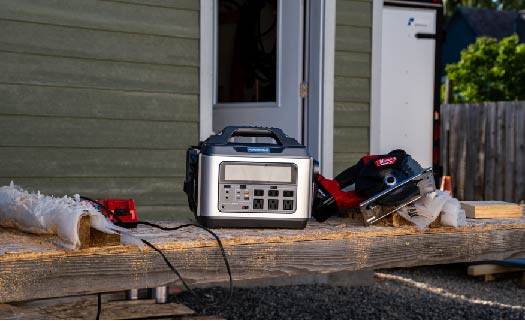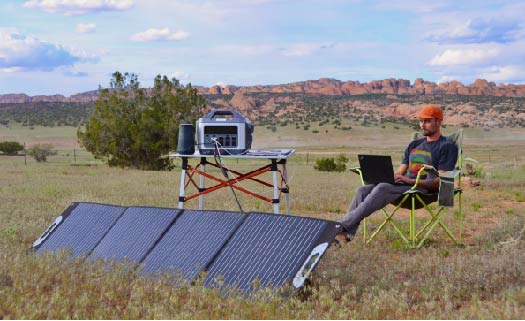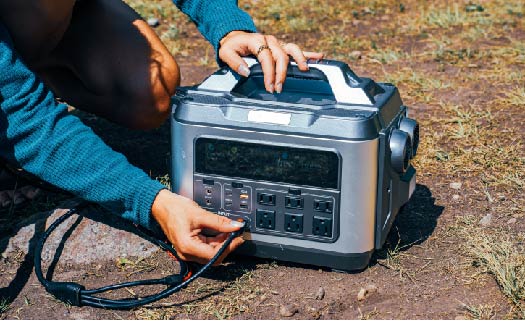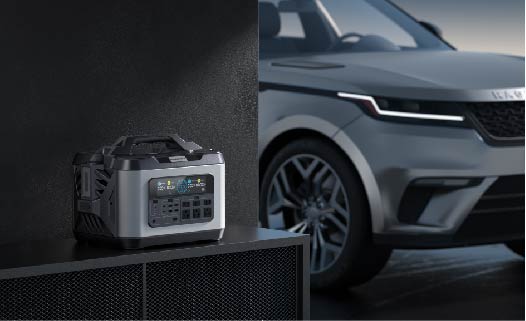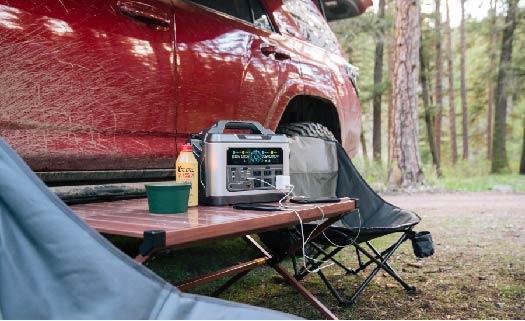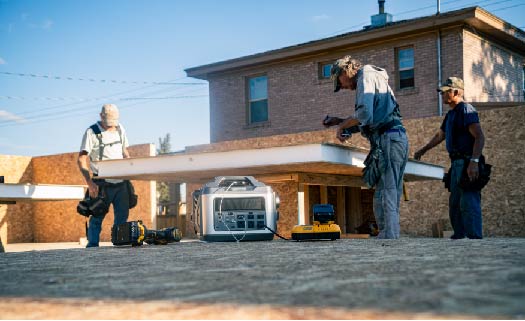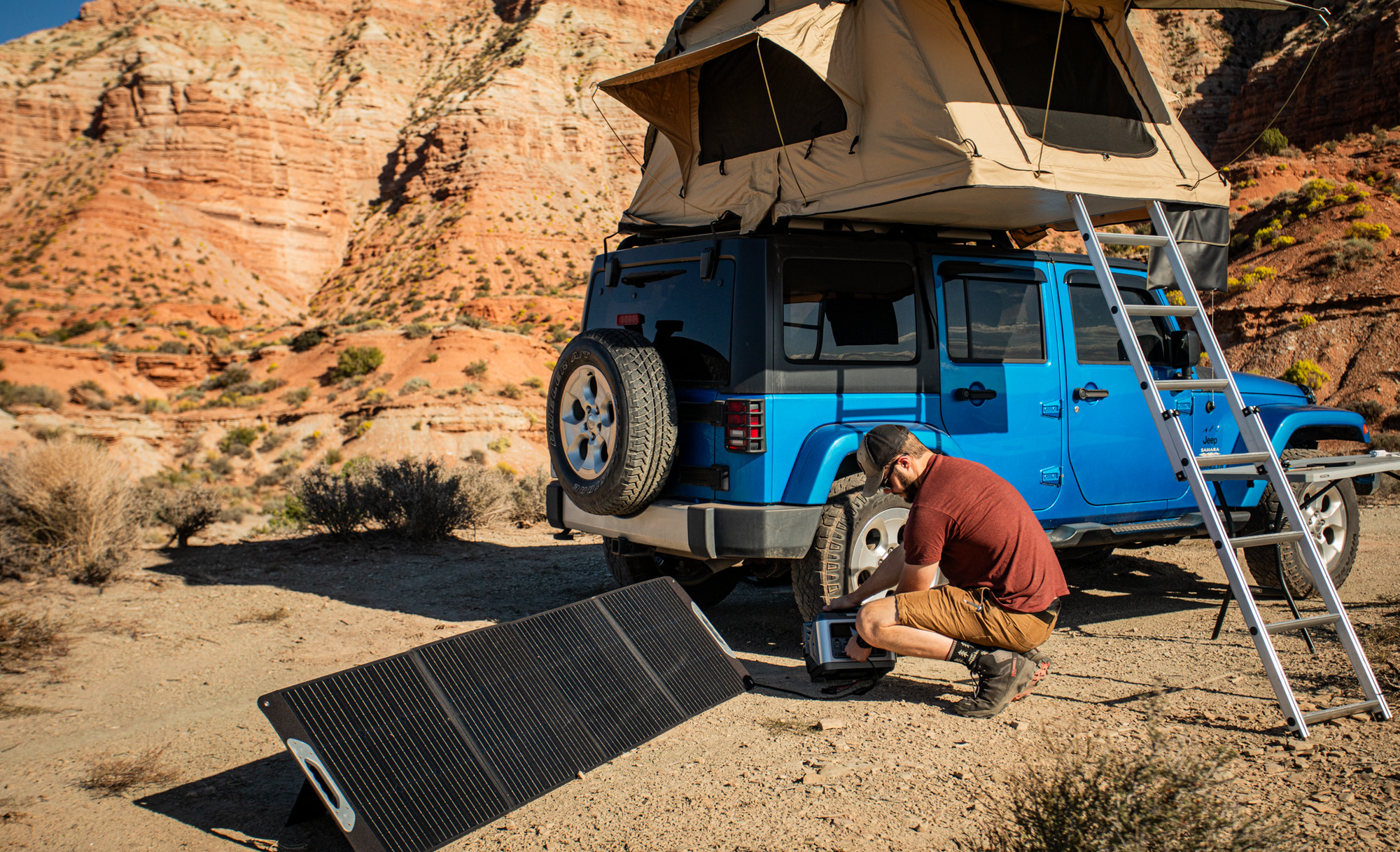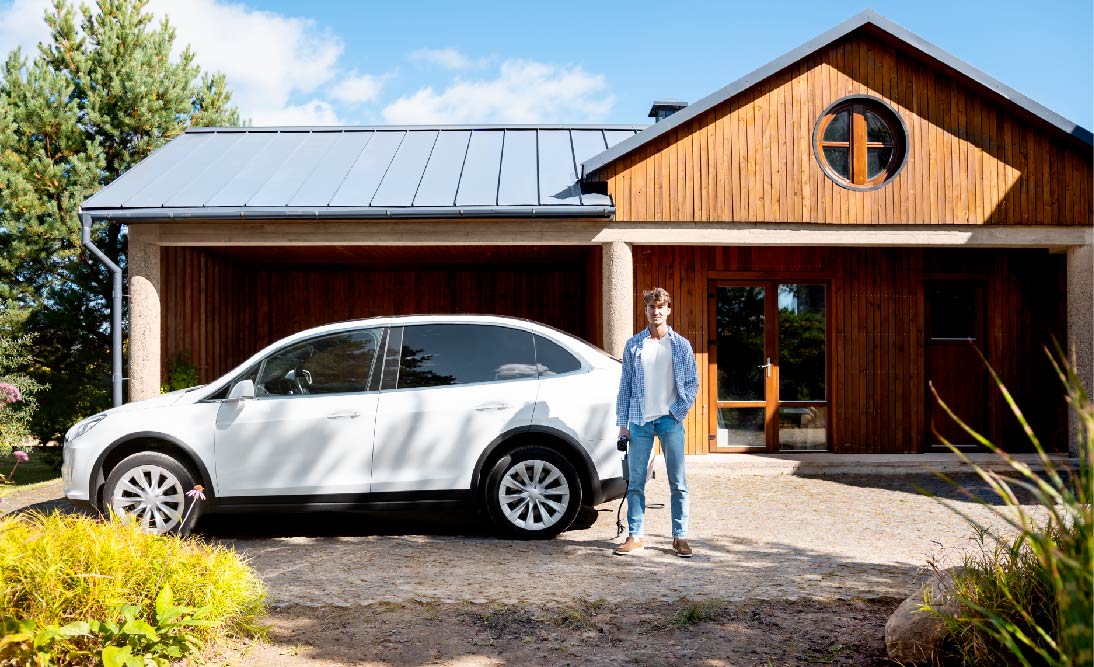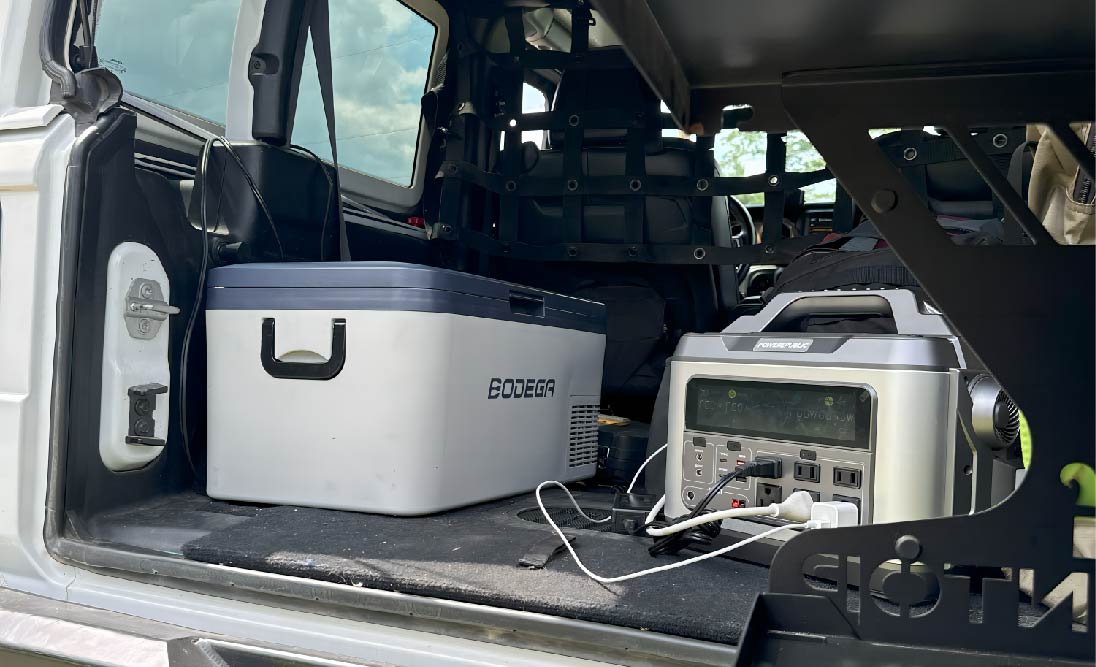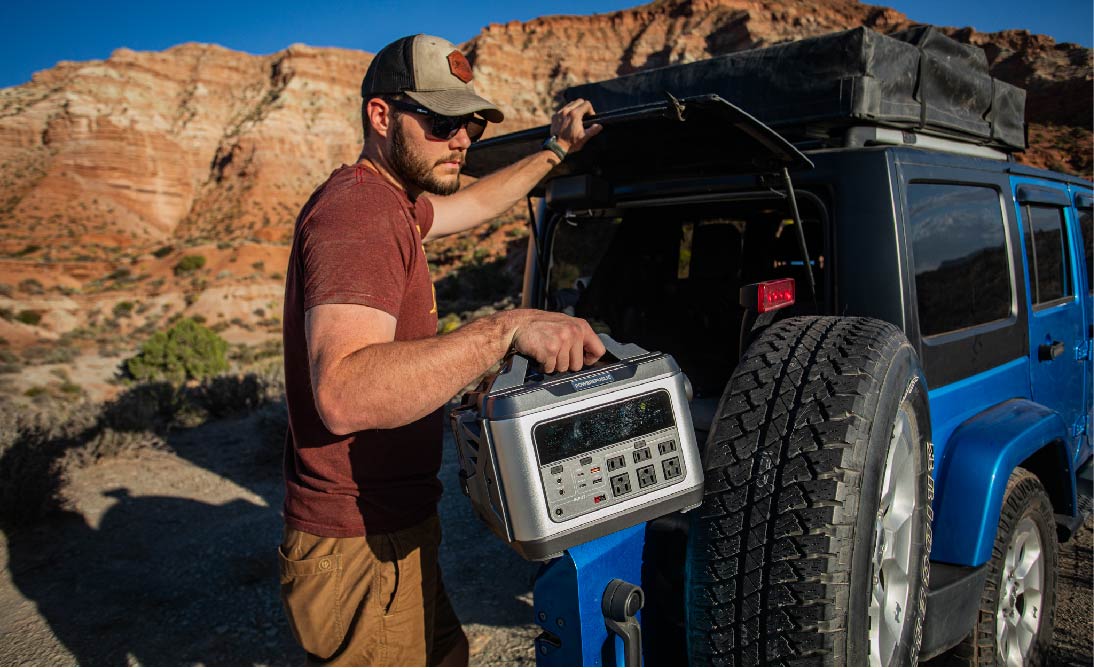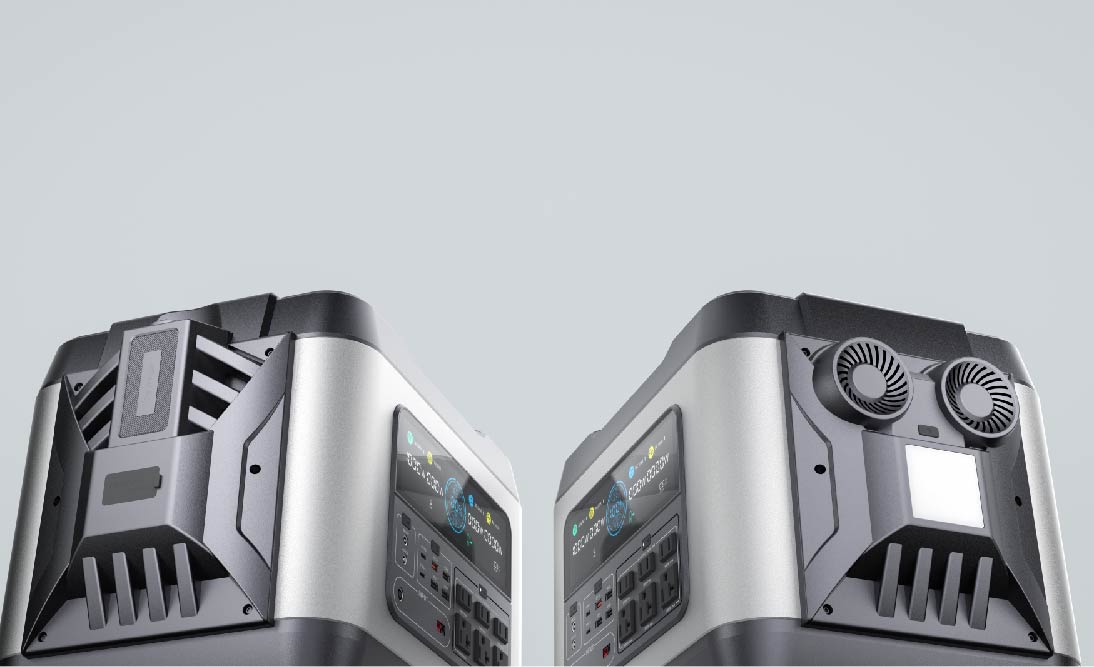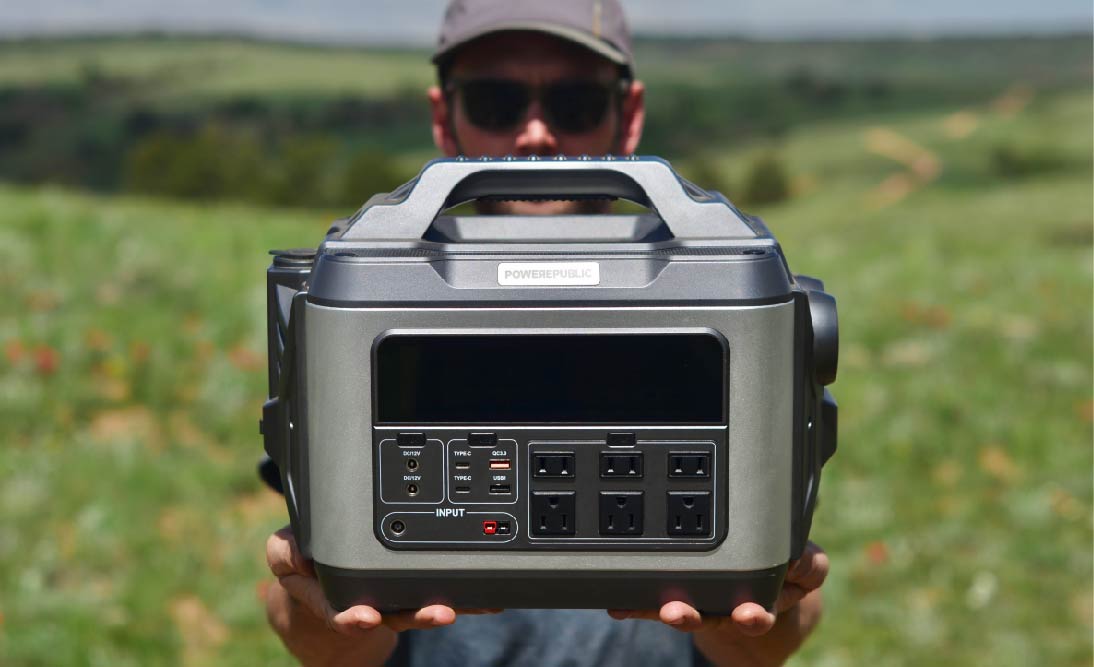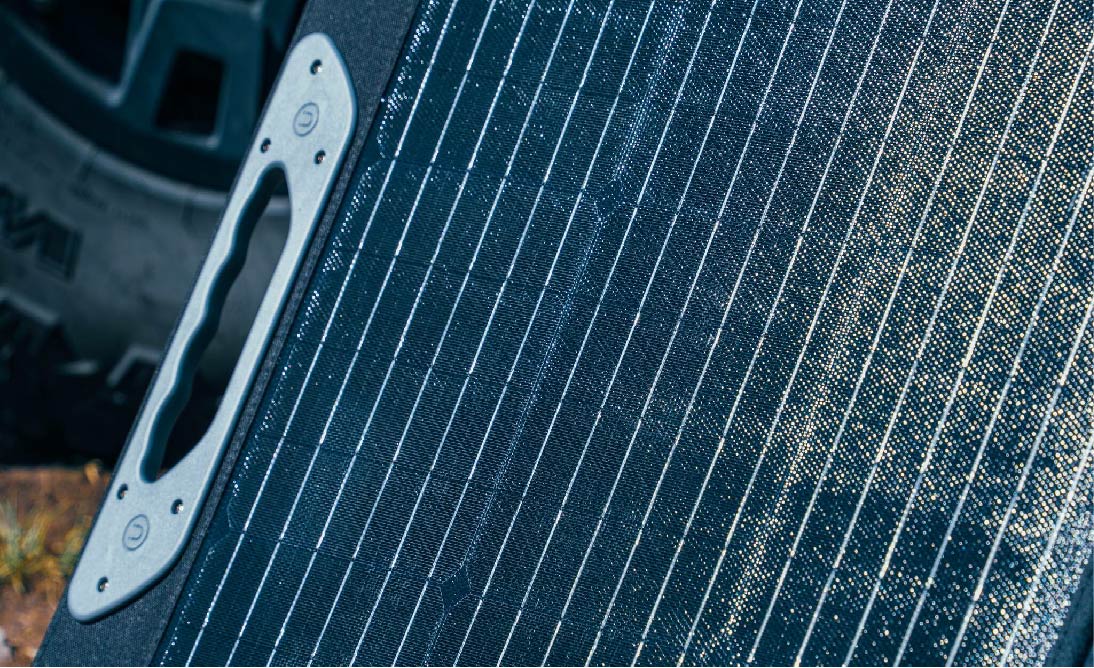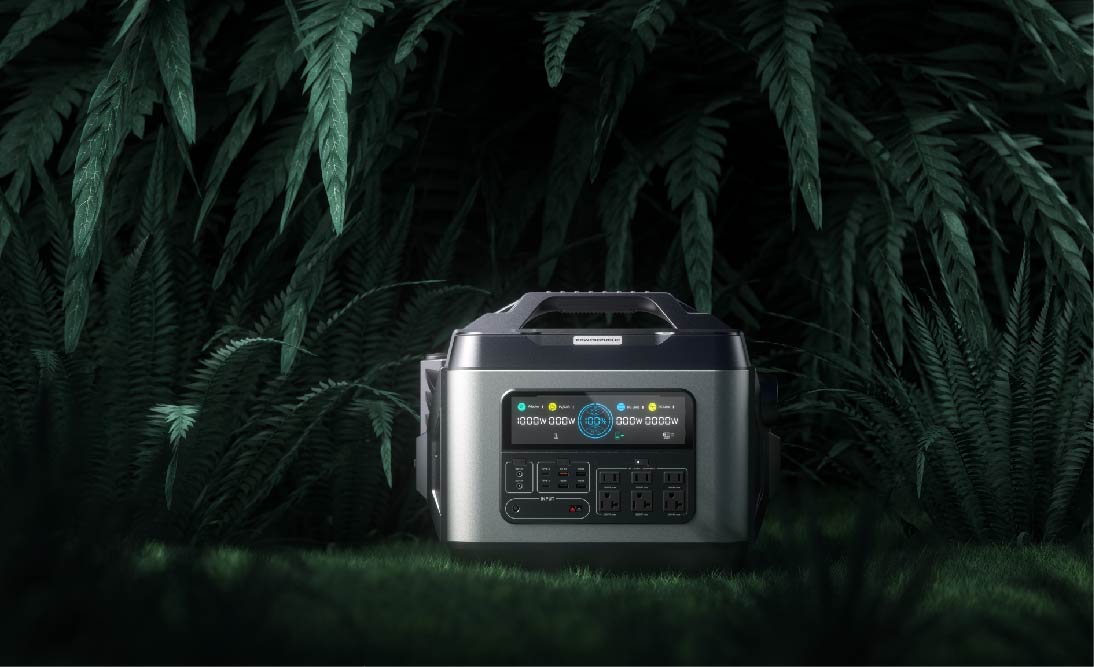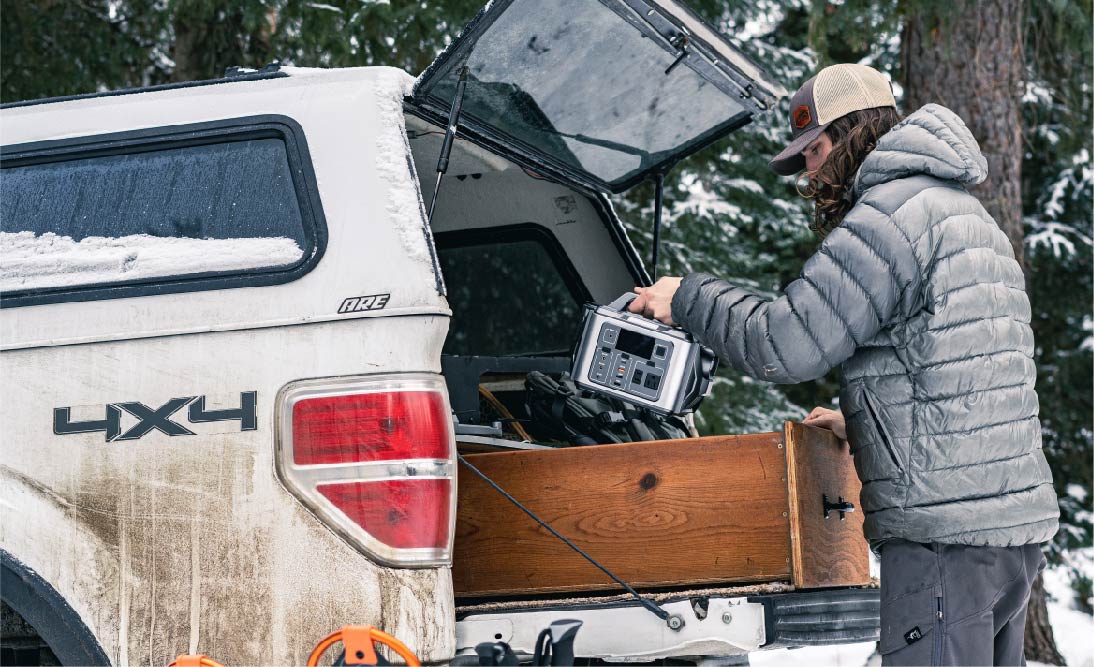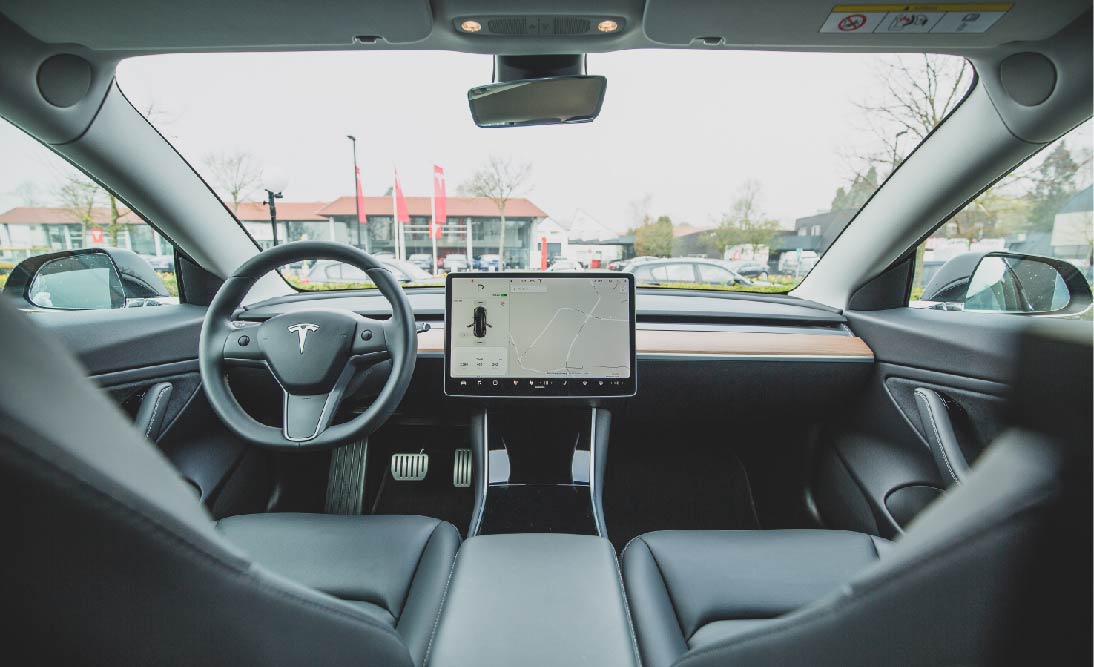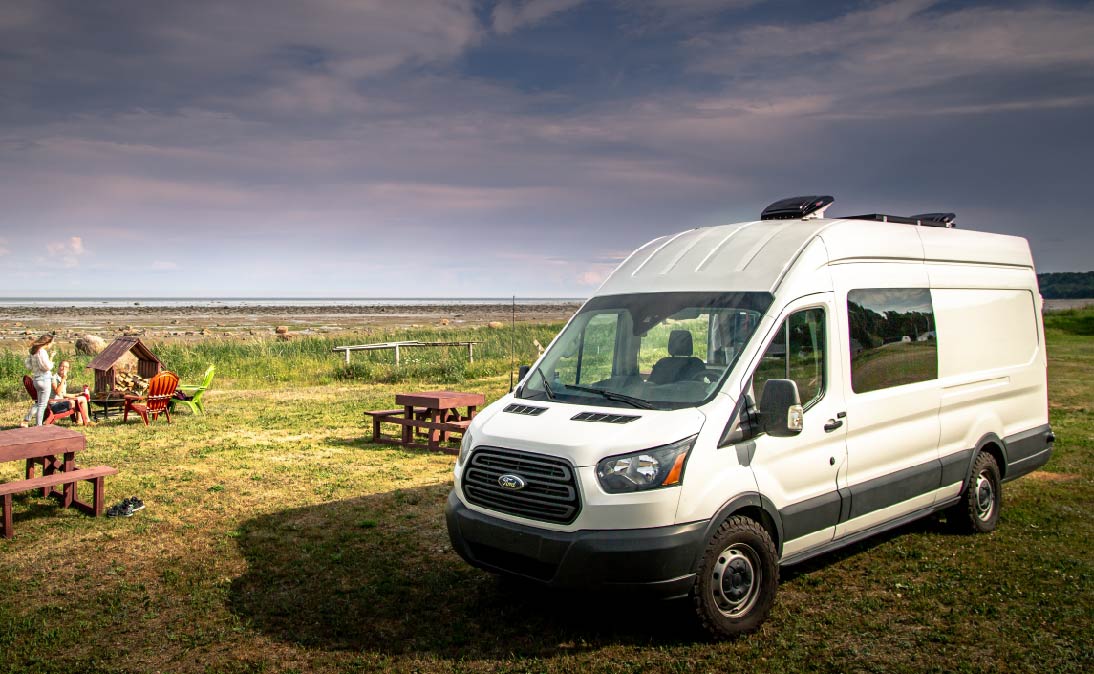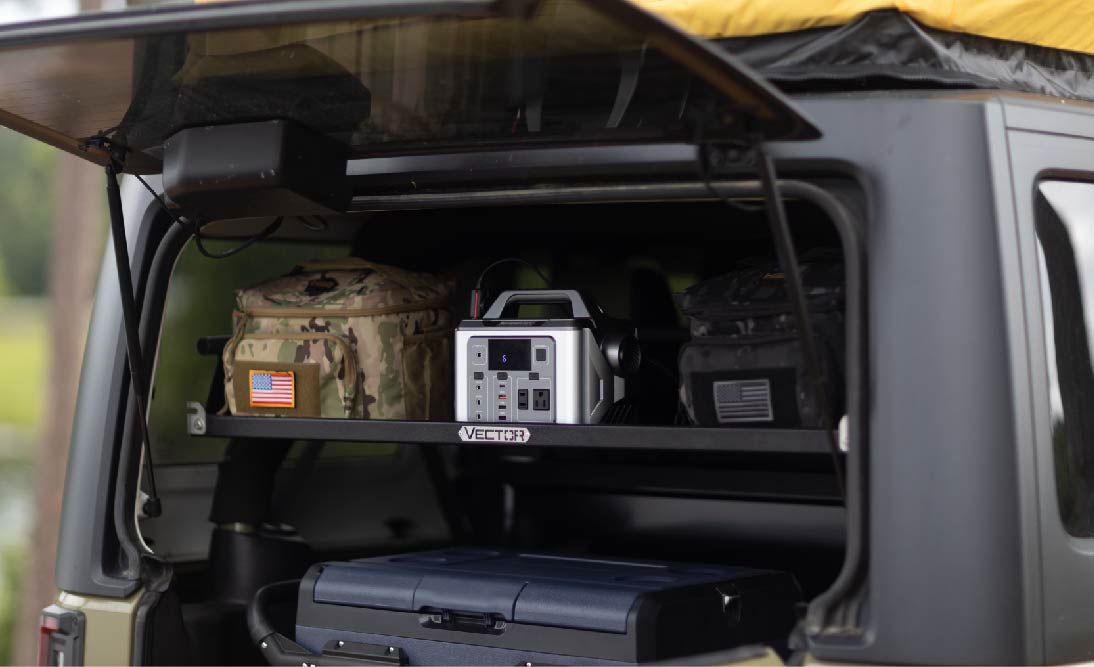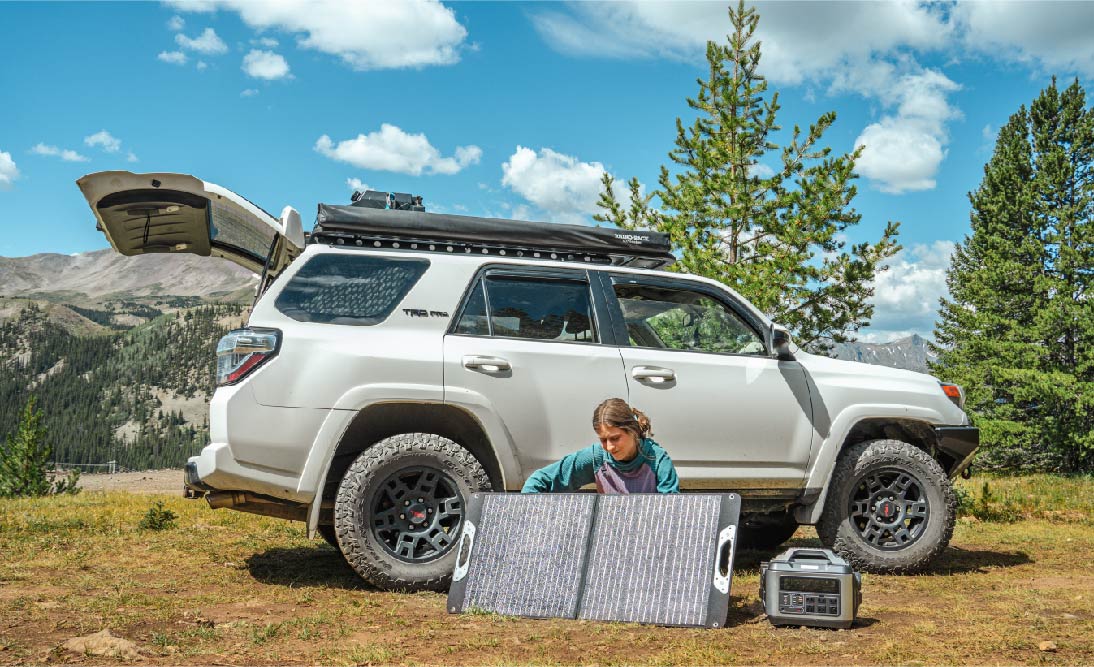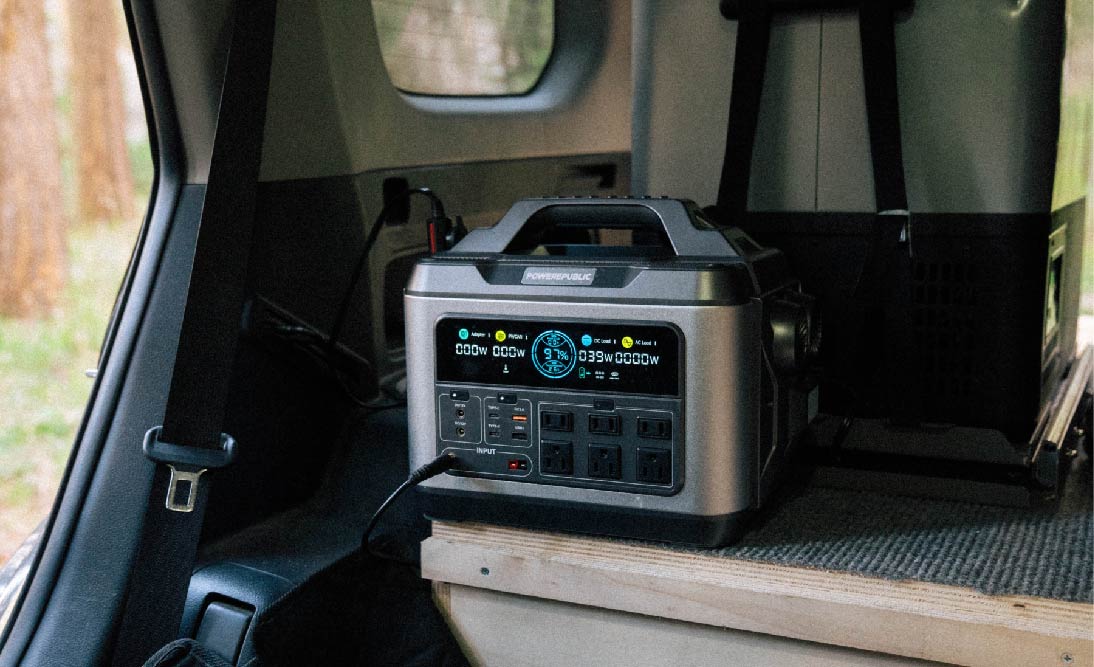Table of Contents:
In the sustainable energy landscape, choosing the right solar power storage battery is more than just a technical decision—it's a step towards energy independence and environmental stewardship. Also, having enough power during unexpected power outages is important for those people who live in areas with extreme weather conditions or lack of electricity. This guide cuts through the complexities of selecting the perfect battery, considering crucial aspects like cost, efficiency, and durability. We spotlight cutting-edge options like POWEREPUBLIC models and examine the growing role of portable power stations.
Balancing the initial investment with long-term returns is key. We focus on diverse battery types, including their capacities, lifespans, and compatibility with existing solar setups. Whether you're aiming for reduced carbon emissions, seeking uninterrupted power, or looking for cost-effective solutions, this guide provides a clear pathway. It's tailored for those navigating the evolving world of solar power storage, ensuring you make a well-informed choice that aligns with your energy goals and values.
Batteries for Solar Power Storage Overview
What are Solar Power Storage Batteries?
Solar power storage batteries are devices that store energy generated by solar panels for later use. When the sun is shining, solar panels convert sunlight into electricity. This electricity is either used immediately or stored in these batteries. The stored energy can be used at night or during cloudy days when the solar panels aren't generating enough power.

How to Store Solar Energy?
Storing solar energy involves a few key components:
-
(Portable)Solar Panels: Absorb sunlight and transform it into electrical energy for later use.
-
Charge Controller: Monitor the electricity generated from the solar panels to the battery, ensuring the battery is charged correctly and preventing overcharging.
-
Battery Storage: Batteries store the electricity generated by the solar panels. They are available in various types, including lithium-ion and LiFePO4 batteries, each with distinct characteristics.
-
Inverter: This device converts the stored DC (Direct Current) power within the batteries into AC (Alternating Current) power, which can be utilized by household appliances.
Lithium-ion vs. LiFePO4 Batteries:
-
Lithium-ion Batteries: These are common in many applications, including solar energy storage. They have high energy density, meaning they can store a lot of energy in a small space, and have a long lifespan. However, they can be more expensive and have some safety concerns, as they can overheat.
-
LiFePO4 Batteries (Lithium Iron Phosphate): These are a type of lithium-ion battery but are generally considered safer, as they are more stable and less prone to overheating. They also have a long lifespan and are more environmentally friendly. However, they are typically more expensive and have a lower energy density compared to standard lithium-ion batteries.
-
Both types of batteries have their pros and cons, and the choice between them often depends on specific needs like budget, space, energy requirements, and safety considerations.
Are Solar Batteries Worth It?
Before we talk about how to select the best batteries for solar power storage, it is beneficial to answer the question: Are solar batteries worth it?
The worthiness of solar batteries depends on personal priorities (financial, environmental, or energy independence), local energy costs, and available incentives. While the initial cost is high, the long-term benefits can make it a worthwhile investment for many.

Here are a few key points to consider:
-
Energy Independence: If you live in an area with frequent power outages or unreliable grid service, solar batteries can be invaluable in maintaining a consistent power supply.
-
Financial Incentives: In regions with high electricity costs or where there are incentives (like tax breaks or rebates) for renewable energy, long-term savings can offset the initial investment in solar batteries.
-
Environmental Impact: If reducing your carbon footprint is a priority, then investing in solar batteries is a step towards sustainable living, despite the higher upfront cost.
Solar Battery Storage Cost
Another factor people are concerned about before choosing the best batteries for solar power storage is the cost. In general, costs can vary widely based on battery type, capacity, and installation complexities. As a rough guide:
-
Initial Costs: A typical home solar battery system might cost anywhere from $5,000 to $15,000. This includes the battery, necessary hardware, and installation.
-
Maintenance and Replacement: Over time, batteries degrade and may need replacement, adding to the long-term cost.
-
Potential Savings: Depending on your electricity usage and local rates, a solar battery can offer significant savings on utility bills over time.

Example Calculation:
Let's consider a more detailed example:
-
Cost of Solar Battery System: $10,000
-
Average Daily Savings: $2 (from stored solar energy used instead of grid electricity)
-
Annual Savings: $2/day * 365 days = $730
-
Break-Even Point: $10,000 / $730/year = 13.7 years
Important Note: This is a simplified model. Actual savings depend on factors like local energy prices, solar energy production, battery lifespan, and efficiency degradation over time. By carefully analyzing these factors, you can make a better decision on finding out the best batteries for solar power storage
Pros and Cons of Solar Battery Storage
Pros of Solar Battery Storage
-
Energy Independence: If your area experiences frequent power outages, having a solar battery means you can keep your lights on and appliances running without relying on the grid.
-
Maximizing Solar Energy Use: With solar batteries, the excess energy produced during sunny days is stored rather than being sent back to the grid. You can then use this stored energy at night or on cloudy days, reducing waste.
-
Financial Savings in the Long Run: Assume your solar panel system generates excess energy worth $2 per day. Without a battery, this energy goes back to the grid. With a battery, it's stored and used, saving you $2 per day. Over a year, this amounts to savings of $730.
Cons of Solar Battery Storage
-
High Initial Cost: A home solar battery system might cost $10,000 upfront. This is a significant investment, and it can take several years to recoup through energy savings.
-
Maintenance and Replacement Costs: Batteries degrade over time and will eventually need replacement. If a battery lasts 10 years, you need to factor in the cost of replacement when calculating long-term expenses.
-
Physical Space Requirement: Batteries require physical space for installation. This can be challenging for smaller homes or apartments.
-
Efficiency Loss Over Time: If a battery has 90% efficiency and you store 10 kWh of energy, you'll only be able to use 9 kWh. As the battery ages, this efficiency decreases, further reducing the usable energy.

While solar battery storage offers benefits like energy independence and long-term savings, it also comes with significant initial costs, maintenance considerations, and physical space requirements. The financial viability largely depends on individual circumstances such as energy usage patterns, local energy costs, and solar energy production capacity. Knowing the pros and cons can help me make better decisions on selecting the best batteries for solar power storage.
How To Select the Best Batteries for Solar Power Storage?
When choosing the best batteries for solar power storage, several factors need to be considered to ensure you make a choice that suits your specific needs and circumstances.
Here’s a guide with real-life examples and calculations:
1. Evaluate Your Power Requirments
-
Example: If your daily energy consumption is 10 kWh and you want to be fully off-grid, you need a battery system that can store at least this amount.
-
Calculation: For a 10 kWh daily need, consider a battery system with a capacity of at least 12 kWh to account for efficiency losses and days with less sunlight.
2. Consider Battery Type:
-
Lithium-ion is suitable for high energy density needs but comes at a higher cost and with some safety concerns.
-
LiFePO4 is safer and more stable but has a lower energy density and is more expensive.
-
Real-Life Decision: If safety and longevity are your priorities, LiFePO4 might be the better choice, despite its higher cost.
3. Evaluate Your Budget
-
Example: If your budget is limited to $10,000, you might need to balance between capacity and battery type.
-
Calculation: Within this budget, you might afford a larger-capacity lithium-ion system or a smaller-capacity LiFePO4 system.
4. Check Warranty and Lifespan
-
Example: A battery with a 10-year warranty and 6,000 cycle life means it should last at least 10 years with daily use.
-
Calculation: If the battery costs $8,000, the cost per cycle is approximately $1.33 ($8,000 / 6,000 cycles).
5. Space and Installation Requirements
-
Example: If you have limited space, compact lithium-ion batteries might be more suitable than bulkier alternatives.
-
Calculation: Measure your available space and compare it with the dimensions of potential battery systems.
6. Compatibility with Existing Systems
-
Example: Ensure that the battery you choose is compatible with your existing solar panels and inverter.
7. Environmental and Safety Considerations
-
Example: If environmental impact is a concern, choose batteries with a lower carbon footprint and safe disposal options.
8. Local Climate
-
Example: Batteries perform differently in various climates. In hot climates, a battery with better thermal management might be necessary.
9. Real-Life Application
Hypothetical Scenario: A homeowner wants to store 8 kWh per day to cover nighttime usage. They live in a moderate climate and have a $12,000 budget. Let's see how they select the best battery for solar power storage according to their needs.
-
Energy Needs: They choose a 10 kWh battery system to ensure full coverage.
-
Battery Type: With a balance between cost and safety, they opt for a LiFePO4 battery.
-
Budget: The chosen battery costs $11,000, fitting within their budget.
-
Warranty and Lifespan: The battery has a 10-year warranty and a 5,000-cycle lifespan, indicating good durability.
-
Space: The homeowner has enough space for the chosen battery system.
-
Compatibility: The battery is compatible with their existing solar setup.
-
Environmental and Safety: The LiFePO4 battery meets its environmental and safety requirements.

Conclusion
Selecting the best battery for solar power storage requires balancing various factors, including energy needs, budget, type of battery, warranty, space requirements, and environmental considerations. A thorough assessment of these factors, coupled with real-life examples and calculations, can guide you in making a decision that aligns with your specific needs and circumstances.
Can Portable Power Stations Serve as Alternatives to Batteries for Solar Power Storage?
Yes, portable power stations can serve as alternatives to traditional batteries for solar power storage, with certain limitations and considerations:
-
Capacity and Scalability: Portable power stations typically have lower energy storage capacity compared to traditional solar batteries. They are more suited for smaller applications like powering individual devices or small appliances.
-
Portability: As the name suggests, these power stations are portable, making them ideal for temporary setups, outdoor activities, and emergencies where mobility is a priority.
-
Ease of Use: Portable power stations are generally plug-and-play, requiring minimal setup and maintenance, which can be advantageous for those not wanting to deal with the complexities of a full solar battery setup.
-
Compatibility: Many portable power stations can be charged via solar panels, making them a viable option for solar power storage. However, their charging efficiency and speed can vary.
-
Cost: Depending on the capacity and features, portable power stations can be more affordable than installing a full solar battery system. This can be a significant factor for users with limited needs or budget constraints.
-
Durability and Lifespan: Traditional solar batteries are typically designed for long-term, intensive use, while portable power stations might have a shorter lifespan and durability under continuous use.

While portable power stations can serve as an alternative to traditional solar batteries, they are generally more suitable for less demanding applications or where portability and ease of use are key considerations. They may not fully replace the functionality of dedicated solar batteries for larger, more energy-intensive systems.
Best Batteries for Solar Power Storage: POWEREPUBLIC Models
From our discussion, it's clear that portable power stations can be a viable alternative to traditional solar batteries, especially for less demanding applications where portability and ease of use are essential.
For those seeking the best batteries for solar power storage under these conditions and more budget-friendly, we recommend POWEREPUBLIC portable power stations. These units are not only rugged and durable but also long-lasting, powerful, and versatile, ranking them among the top choices for solar power storage on the market. All POWEREPUBLIC portable power stations are compatible with portable solar panels for solar power storage.

The table below details the key features, functionality, and operation time of each model, helping you select the most suitable option for your solar power storage needs. If you find the table too complicated, please visit our Compare page for more details.
|
Feature/Model |
||||
|
Capacity |
296Wh/20,000mAh |
1110Wh/50,000mAh |
2240Wh/100,000mAh |
3200Wh/125,000mAh |
|
Output Power |
300W, Peak 600W |
1200W, Peak 2600W |
2200W, Peak 4500W |
3000W, Peak 6000W |
|
Battery Type |
Lithium-Ion(800+ cycles) |
Lithium-Ion(800+ cycles) |
LiFePO4 Batteries(3000+ cycles) |
LiFePO4 Batteries(3000+ cycles) |
|
Number of Output Ports |
10 |
13 |
15 |
15 |
|
Charging Methods |
AC Adapter, Solar Panel, Car Charger |
AC Adapter, Solar Panel, Car Charger |
AC Adapter, Solar Panel, Car Charger |
AC Adapter, Solar Panel, Car Charger |
|
Solar Panel Compatibility |
PV100 & PV200 |
PV100 & PV200 |
PV100 & PV200 |
|
|
Weight |
9.2Ibs/4Kg |
31Ibs/14Kg |
64Ibs/30Kg |
88Ibs/40Kg |
|
Dimensions |
11.2*6.1*8.0 inch |
14.3*9.3*10.6 Inch |
18.3*11.8*12.2 inch |
18.3*11.8*14.5 inch |
|
Trustpilot Rating |
||||
|
Est.Operation Time(h) |
The operation time(h)=Capacity(Wh) * 0.85 / The power of the item(W) |
|||
|
LED Light Bulb (10W) |
25 hours |
94 hours |
190 hours |
272 hours |
|
Laptop (50W) |
5 hours |
18.5 hours |
38 hours |
54.5 hours |
|
Blender (300W) |
0.8 hours |
3 hours |
6.3 hours |
9 hours |
|
Television (400W) |
Not Applicable |
2.4 hours |
4.5 hours |
6.8 hours |
|
Washing Machine (500W) |
Not Applicable |
1.8 hours |
3.8 hours |
5.5 hours |
|
Refrigerator (800W) |
Not Applicable |
1.2 hours |
2.4 hours |
3.4 hours |
|
Air Conditioner (1500W) |
Not Applicable |
Not Applicable |
1.3 hours |
1.8 hours |
|
Electric Oven (3500W) |
Not Applicable |
Not Applicable |
Not Applicable |
0.8 hours |
Note That:
-
The operation time is estimated based on running one item at a time with the battery level at 100%. For accurate wattage information for your device and the current battery level of the portable power station, please consult the user manual.
-
Please verify both the running wattage and starting wattage of your device and the portable power station to ensure proper operation. The running and starting wattage of your device should not exceed that of the portable power station.
Final Thoughts: Best Batteries for Solar Power Storage
Choosing the best batteries for solar power storage involves weighing various factors, including energy needs, budget, battery type, warranty, space, and environmental considerations. POWEREPUBLIC portable power stations, compatible with POWEREPUBLIC portable solar panels, emerge as a recommended choice for their affordability, durability, and versatility, making them ideal for those seeking efficient solar power storage solutions.
In summary, solar batteries offer energy independence and long-term savings, making them a valuable investment. Portable power stations can serve as viable alternatives for smaller applications. Choose the options that provide cost-effective and reliable options for solar power storage. Ensure your device's running and starting wattage align with the portable power station's capacity. With these considerations, you can make an informed decision on the best batteries for solar power storage.









